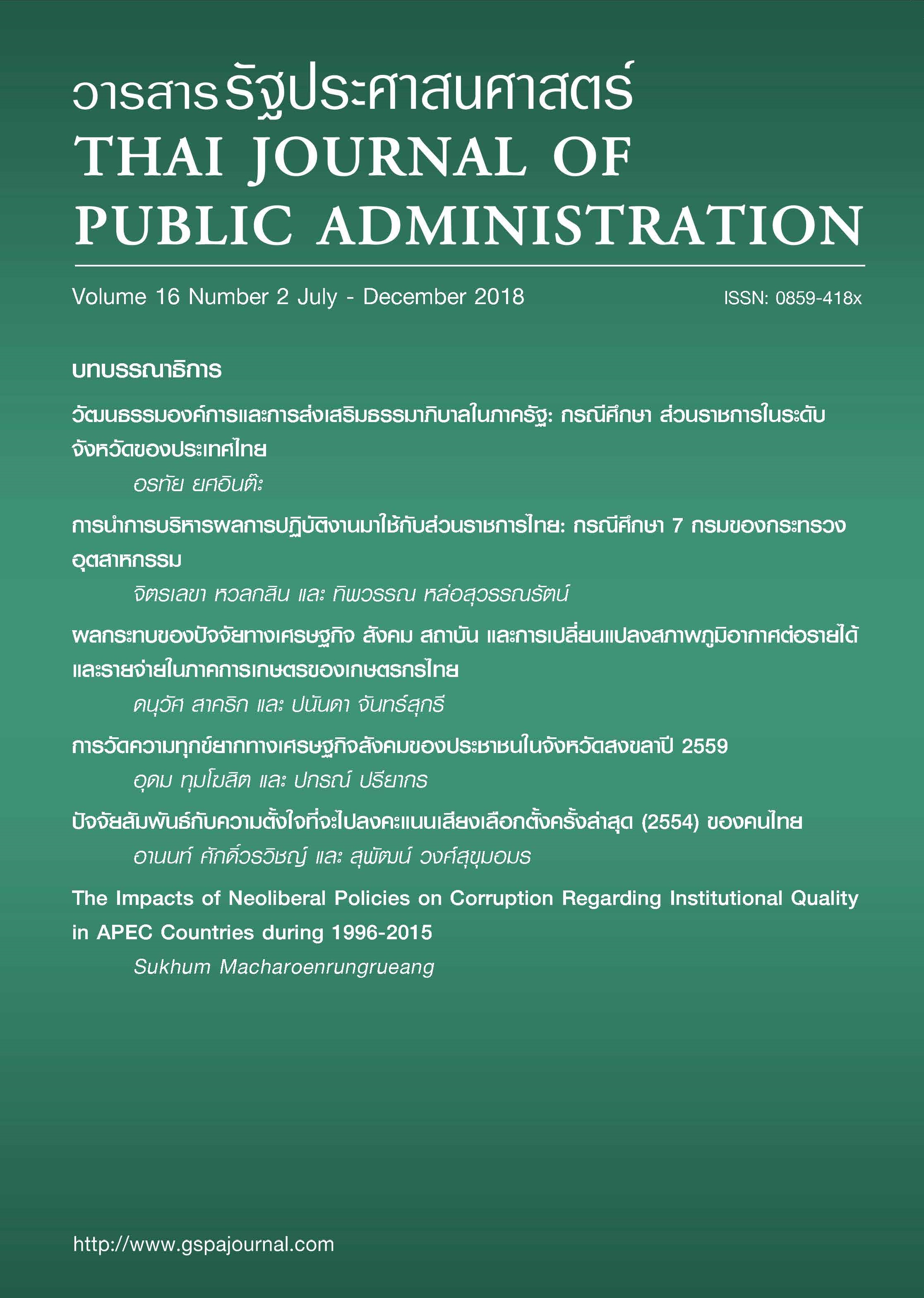The Impacts of Neoliberal Policies on Corruption Regarding Institutional Quality in APEC Countries during 1996-2015
Keywords:
Neoliberalism, economic liberalization, corruption, institutional qualityAbstract
This research assesses the impacts of neoliberal policies on corruption, using a wide range of neoliberal variables as a measure of economic liberalization in relation to three major elements: trade liberalization, financial liberalization, and privatization, as well as the institutional quality of Asia-Pacific Economic Cooperation (APEC) during the period 1996-2015.
The application of panel data regression to different institutional settings yielded interesting empirical evidence interrelated with contemporary theoretical support. Trade liberalization and financial liberalization are associated with lower levels of corruption in APEC developed countries. Contradicting neoliberalism’s main arguments, however, APEC developed countries’ governments, which effectively formulate and implement sound policies promoting private sector development, permit a sphere of voluntary action and encourage free market competition, as well as minimize forms of state intercessions, may deliver illegitimate gains to government officials and private players, resulting in higher levels of corruption.
In APEC developing countries, the public policy of privatizing the state owned enterprises, as well as fostering the development of multinational companies during international market entry and expansion phases, has resulted in increasing the level of corruption. In order to mitigate the corruption level, APEC developing countries need to improve their institutional quality in three major areas: regulatory quality, freedom rating, and ease of doing business.
Policymakers should carefully consider neoliberal policies and their potential deviating impacts in different contextual settings for effective neoliberal economic policy implementation in their countries. Hence, in curbing corruption, policymakers should not place emphasis on neoliberalization alone, but should embed the development of institutional quality in policy formulation and implementation along with people’s participation in such reforms.



